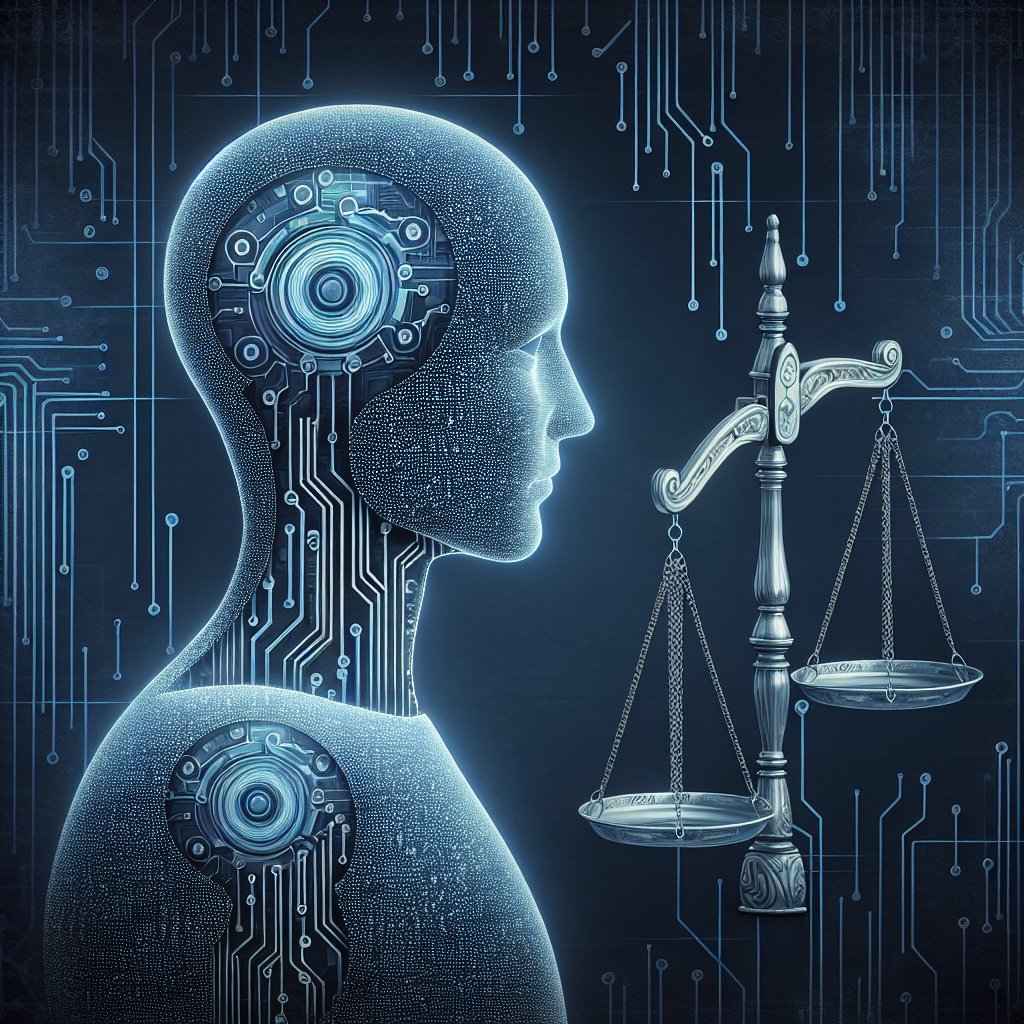Artificial intelligence (AI) has revolutionized many industries, including the legal sector. AI is being increasingly used in legal decision-making processes, from predicting case outcomes to assisting in contract analysis. While AI has the potential to streamline processes and improve efficiency in the legal field, there are ethical implications that must be considered.
One of the main ethical concerns surrounding the use of AI in legal decision-making is the potential for bias. AI algorithms are only as good as the data they are trained on, and if that data is biased, the AI system will perpetuate that bias. For example, if an AI system is trained on historical data that reflects biases against certain groups, such as racial minorities, it may make decisions that are discriminatory. This raises concerns about fairness and justice in the legal system.
Another ethical concern is the lack of transparency in AI decision-making. AI algorithms are often seen as a “black box,” meaning that it can be difficult to understand how they arrived at a particular decision. This lack of transparency can make it challenging for individuals to challenge or appeal decisions made by AI systems. It also raises questions about accountability and responsibility for these decisions.
Additionally, there are concerns about the potential for job displacement as AI becomes increasingly integrated into the legal profession. While AI can automate routine tasks and free up time for lawyers to focus on more complex legal work, there is the risk that AI could replace human lawyers altogether. This raises questions about the future of the legal profession and the impact on job security for legal professionals.
Despite these ethical concerns, there are also potential benefits to using AI in legal decision-making. AI can help lawyers sift through large amounts of data quickly and efficiently, allowing them to focus on more strategic tasks. AI can also help improve access to justice by making legal services more affordable and accessible to a wider range of people. Additionally, AI can help reduce human error and improve the accuracy of legal decisions.
To address the ethical implications of AI in legal decision-making, it is essential to develop guidelines and regulations that ensure transparency, accountability, and fairness. This may include implementing auditing processes to monitor AI decision-making, ensuring that AI systems are trained on unbiased data, and creating mechanisms for individuals to challenge AI decisions. It is also important to invest in education and training for legal professionals to ensure they understand how AI works and how to use it ethically.
In conclusion, the use of AI in legal decision-making presents ethical challenges that must be carefully considered and addressed. While AI has the potential to improve efficiency and access to justice in the legal sector, it also raises concerns about bias, transparency, and job displacement. By developing ethical guidelines and regulations, we can harness the benefits of AI while mitigating its potential risks in the legal profession.
FAQs:
Q: Can AI completely replace human lawyers in the future?
A: While AI can automate routine tasks and improve efficiency in the legal profession, it is unlikely that AI will completely replace human lawyers. Human lawyers bring unique skills such as empathy, creativity, and critical thinking that are essential for many legal tasks.
Q: How can we ensure that AI decisions are fair and unbiased?
A: To ensure that AI decisions are fair and unbiased, it is important to train AI systems on diverse and unbiased data, implement auditing processes to monitor AI decision-making, and create mechanisms for individuals to challenge AI decisions.
Q: What are some of the benefits of using AI in legal decision-making?
A: Some benefits of using AI in legal decision-making include improved efficiency, access to justice, and accuracy of legal decisions. AI can help lawyers sift through large amounts of data quickly, make legal services more affordable and accessible, and reduce human error.
Q: What are some of the ethical concerns surrounding the use of AI in legal decision-making?
A: Some ethical concerns surrounding the use of AI in legal decision-making include bias, lack of transparency, and job displacement. AI algorithms can perpetuate biases in the data they are trained on, make decisions that are difficult to understand, and potentially replace human lawyers in the future.

